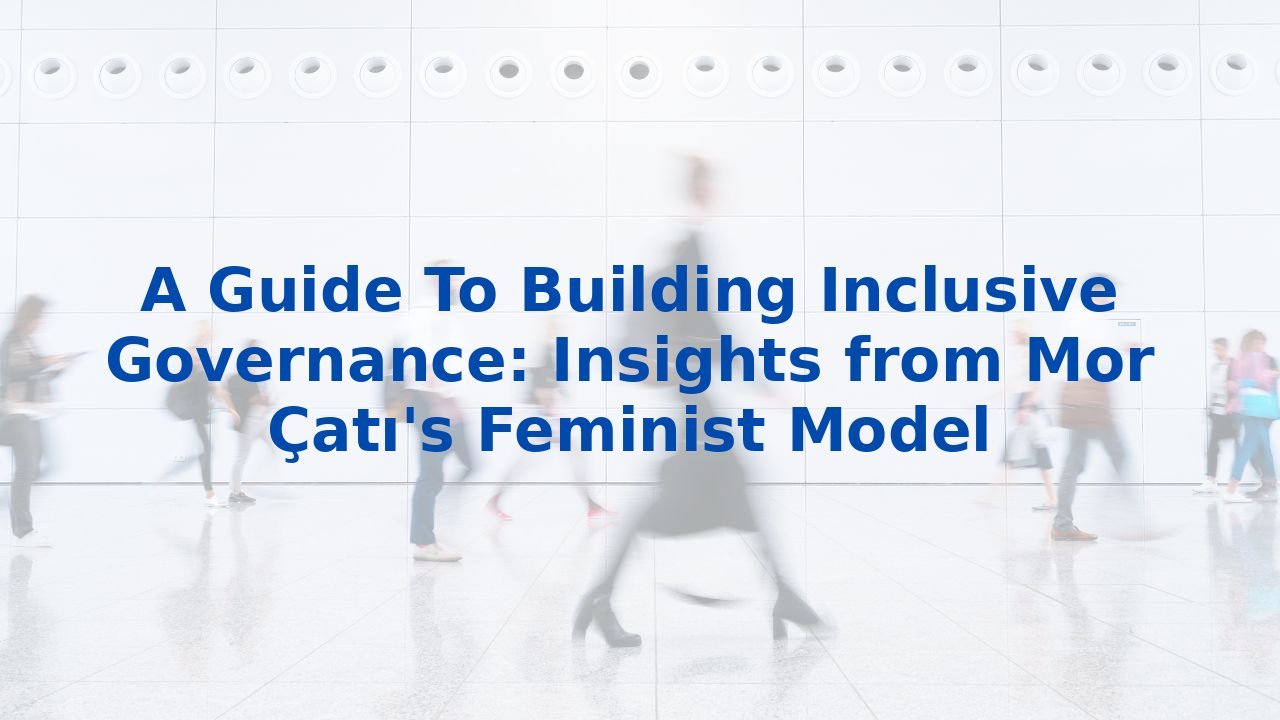A Guide To Building Inclusive Governance: Insights from Mor Çatı's Feminist Model
A Guide To Building Inclusive Governance: Insights from Mor Çatı's Feminist Model
In the ever-changing terrain of non-profit organizations (NPOs), the strength of governance can directly influence mission achievement and long-term sustainability. Mor Çatı, a trailblazer rooted in feminist principles, showcases the profound impact inclusive governance can have. Their journey reveals not just the significance of shared decision-making, but also how artificial intelligence (AI) can enhance these governance processes, propelling organizations toward efficiency and greater communal resonance.
The Importance of Inclusive Governance
Inclusive governance is more than a procedural formality; it is the heart of any successful NPO. Envision a structure where every voice matters, where decisions are created through collaboration, not hierarchy. Mor Çatı embodies this ethos. Their approach, originating from the feminist movements of the 1980s, has become a powerful model in combating gender-based violence—one that emphasizes solidarity and community empowerment.
How AI Can Enhance Governance Processes
The potential of AI in governance is enormous, offering innovative avenues to not only streamline processes but also enhance the overall organizational landscape. Here’s how AI can elevate governance:
1. Data Analysis and Reporting
Imagine being able to sift through mountains of data instantaneously, pulling out insights that drive strategic decisions. AI facilitates rapid data analysis, transforming extensive datasets into actionable insights. Automated reporting capabilities ensure timely dissemination of information, fostering transparency among stakeholders. This promotes trust and keeps everyone aligned with the organization's goals.
2. Communication and Collaboration
Efficient communication is the backbone of collective governance. AI-driven communication tools can revolutionize how stakeholders interact. From chatbots managing routine inquiries to collaborative platforms enhanced with AI features, organizations can facilitate seamless conversations. This not only keeps teams productive but nurtures an inclusive atmosphere where every opinion is valued.
3. Risk Management
In the dynamic realm of governance, anticipation is key. AI excels at predictive analytics, helping organizations foresee potential risks and challenges. By identifying patterns and providing foresight into financial trends, AI enables proactive measures that can safeguard resources and strengthen the organization’s position.
4. Training and Development
Equipping teams for a future intertwined with AI is not merely an additive process; it's essential. Implementing a training framework that focuses on building AI literacy can transform how employees interact with technology. By fostering an understanding of AI tools, organizations can ensure their teams are not just users but empowered contributors to a tech-savvy environment. This training not only amplifies efficiency but catalyzes a culture of continuous improvement.
Benefits of AI for NPOs
The integration of AI within NPO governance offers a constellation of benefits that revolutionize operational dynamics:
1. Increased Efficiency
AI thrives on automating routines. By taking over repetitive tasks, it liberates human resources, allowing staff to focus on strategic initiatives and creative solutions. Imagine the productivity gains when skilled personnel can dedicate more time to mission-oriented work instead of administrative chores.
2. Enhanced Transparency
In a world where transparency fosters trust, AI can redefine accountability in decision-making. Automated systems ensure that data integrity is maintained, reducing inconsistencies and human error. This transparency doesn’t just build internal trust; it bridges connections with external stakeholders, reassuring them about the organization’s integrity.
3. Improved Decision-Making
AI's capability to deliver timely, data-driven insights empowers organizations to allocate resources strategically. With AI guiding decisions, organizations can focus on their mission with enhanced clarity and purpose.
4. Better Stakeholder Engagement
Engagement is more than communication; it’s about connection. AI-enhanced tools can foster richer interactions with stakeholders. By ensuring everyone has access to relevant updates and opportunities to contribute, organizations cultivate an atmosphere of inclusivity and collaboration.
Conclusion
Inclusive governance is not merely a methodology; it is the lifeblood of successful NPOs like Mor Çatı. Incorporating AI into these governance processes holds unmatched potential to improve efficiency, cultivate transparency, and refine decision-making. As organizations embark on their journeys toward inclusivity, it is vital to embrace AI as a partner. Together, they can shape a more equitable and empowering environment for all stakeholders, amplifying the collective impact of their missions.
Ready to transform your organization? Explore how comprehensive AI Training can empower your workforce and enhance governance, ensuring everyone is equipped for an inclusive future.



